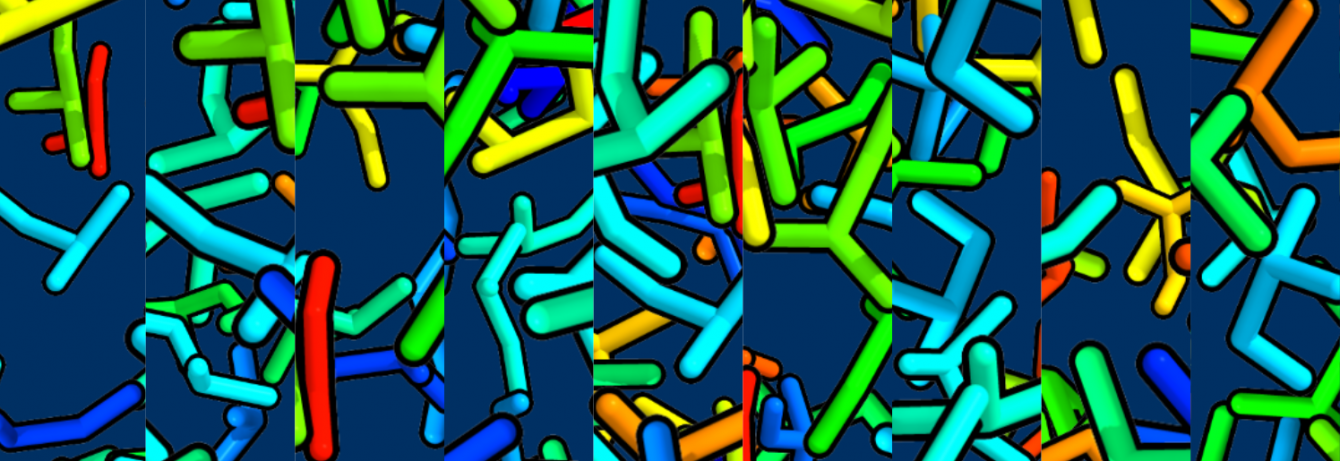
Annual Report
If you would like to receive the digital HITS Annual Report, please use this registration form: https://www.h-its.org/registration/
The HITS Annual Report 2024 – Foreword
Science is a dynamic and constantly growing field. Every discovery and every new theory raises novel questions and opens up new perspectives.
These dynamics were also reflected at HITS in 2024:
Ganna (Anya) Gryn’ova – head of the Computational Carbon Chemistry (CCC) junior group – accepted an offer for the position of Associate Professor of Computational Chemistry at the University of Birmingham in the United Kingdom and left HITS in April 2024 (see Chapter 2.2).
Moreover, after fifteen years of highly successful work as head of the Molecular Biomechanics (MBM) group at HITS, Frauke Gräter joined the Max Planck Institute for Polymer Research in Mainz as a director effective January 2025 (see Chapter 2.7).
Furthermore, Adele Goldberg and Gert-Martin Greuel retired from the HITS Scientific Advisory Board (SAB) after ten years of dedicated service. In return, we were able to welcome our new SAB members Viola Vogel – a biophysicist at ETH Zurich, Switzerland – and Barbara Ercolano – an astrophysicist at LMU Munich – in 2024 (see Chapter 11).
Last but not least, Wilfried Juling retired as director of the HITS Foundation in November 2023, and we organized a special symposium on the theme of AI at HITS on 18 March 2024 in his honor (see Chapter 5.3).
We are extremely grateful for our former colleagues’ contributions and commitment and wish them all the best for their future. In fact, the new career paths of the two scientists are illustrative of the exceptionally high quality of the scientific work that is carried out at HITS. At the same time, we are happy to welcome our new distinguished SAB members who will guide us on the scientific paths that will come.
Despite many changes, HITS continues to focus on cutting-edge research in the natural, mathematical, and computer sciences. Here are just a few highlights from 2024:
Frauke Gräter received a Human Frontier Science Program research grant together with Ronen Zaidel-Bar (Tel Aviv University, Israel) and Alexander Dunn (Stanford University, USA) to study the effects of physical force on extracellular collagen in mice and C. elegans.
Tilmann Gneiting received the 2024 Ulf Grenander Prize in Stochastic Theory and Modeling. The prize is awarded every three years by the American Mathematical Society and recognizes seminal work in the areas of probabilistic modeling, statistical inference, or related computational algorithms, especially for the analysis of complex or high-dimensional systems (see Chapter 10.5).
For the ninth year in a row, Alexandros Stamatakis was recognized as a Highly Cited Researcher by Clarivate Analytics (see Chapter 10.5).
Guillermo Cabrera-Vives – a computer scientist from the University of Concepción, Chile –visited HITS through the Klaus Tschira Guest Professorship program. Guillermo presented his research within the HITS Colloquium, intensified collaboration with the AIN group, and interacted with many other HITSters (see Chapter 6.1).
Felicitas Mokler – a German science journalist – spent April through September 2024 at HITS via the HITS Journalist in Residence program. During her stay, Felicitas interacted closely with HITSters, gave a public talk at the “Mathematics Informatics Station” (MAINS), and shared her expertise on science journalism and science communications (see Chapter 4).
Every change – big or small – gives us the opportunity to reflect on the past and think of what we want to achieve in the future. Scientific excellence and innovative research have always been our goal, and this goal will not be changed. HITS has a unique combination of diverse research areas, outstanding researchers, and the perfect setting for interdisciplinary exchange. Several new groups are currently being discussed and planned, and we appreciate the opportunity to both expand our knowledge and pursue new lines of research.
We hope you enjoy reading our Annual Report 2024!
Dr. Gesa Schönberger, Managing Director
Prof. Dr. Tilmann Gneiting, Scientific Director 2023 & 2024
Download the HITS Annual Report 2024 here: